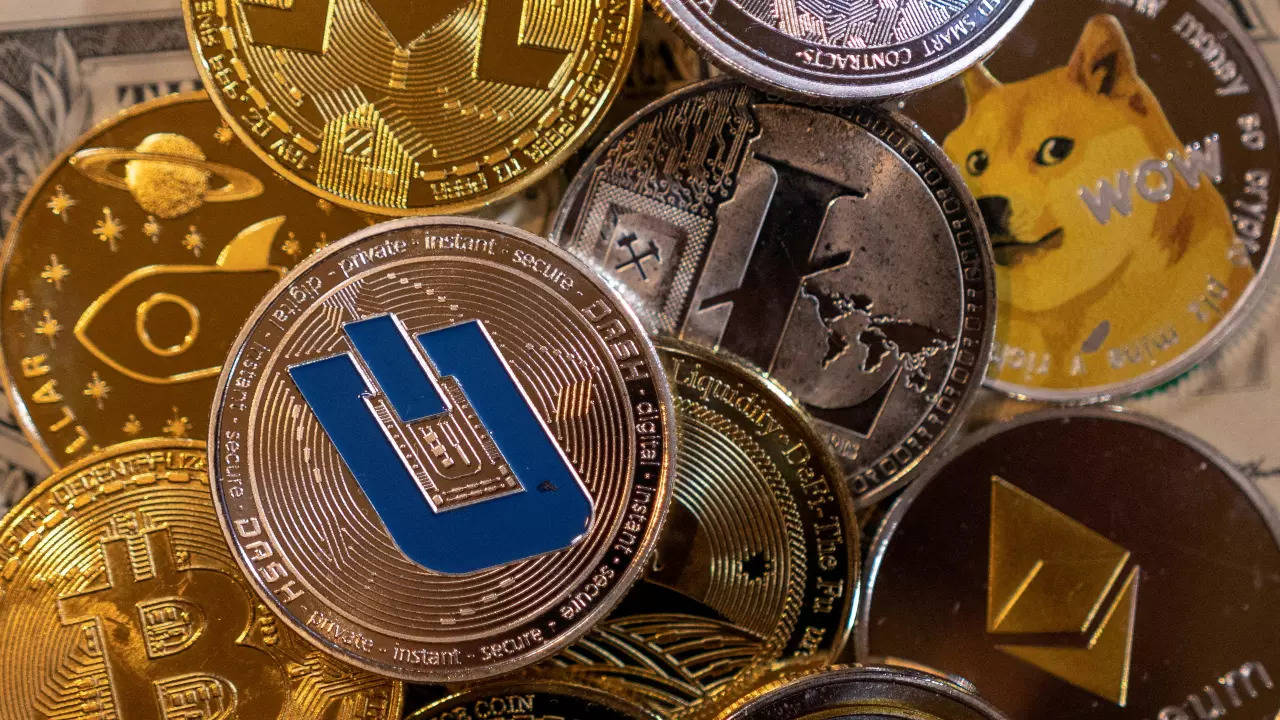A token maker or token generator tool is described as a type of software utilized in the creation of crypto tokens.
Tokens represent different assets, including virtual goods, digital currencies, loyalty points, and real-world assets, including artwork and real estate. Tokens may also be developed to grant access to a decentralized application (dApp) or deploy token smart contracts.
Technically, token makers execute the tedious task of coding out of the mix – virtually letting anybody develop their token and launch a new crypto. Recently, crypto token development was a majorly complex task, and just a few blockchain developers with advanced blockchain programming skills could mint these digital coins.
But, as the tech evolved considerably, no-code tokenization platforms like CoinTool and TokenMint created innovative platforms that equipped virtually everyone with an aptitude for cryptos to develop their own tokens.
Subject to the platform used, token generators can develop fungible and nonfungible tokens (NFTs) based on particular token standards such as BRC-20 and ERC-20. Apart from using automation to develop and manage tokens, the token creators also let users control certain parameters, including token validity. Tokens might also get revoked if needed.
To guarantee that the generated tokens are fully secure, random, and unpredictable, the tools normally introduce an entropy source when generating these tokens. Entropy is the amount of uncertainty, measured in ‘bits,’ that a criminal actor or attacker will contend with to discover the value of encrypted information within the token.
In general, an entropy source is an input device installed on a computer that supplies random bits, increasing the difficulty level that a potential attacker must deal with when attempting to access unauthorized information.
Related: We Ask the Pros- How Are Cryptocurrency Tokens Valued? (Roundtable Interview)
How No-Code Token Generation Works
A token generator is designed to simplify the tokenization process via automation while integrating custom tokenomics and guaranteeing privacy.
Token generators help smoothen the process of token development with automated drag-and-drop features, getting rid of barriers to tokenization that crypto enthusiasts with little to no programming expertise normally encounter.
These tokens represent specific utilities or assets. Tokenization efficiently changes something valuable into a digital token that blockchain-based applications can then use effectively. Subject to one’s preferred utility, the tokens can represent tangible or intangible assets.
Tangible assets are the ones with physical forms, including physical artworks, real estate, and gold. Intangible assets, on the flip side, might refer to the things like ownership rights, licensing, voting rights, and loyalty points.
Previously, developers developed tokens by writing code in a programming language that the specific protocol can understand. Developing an ERC-20 token on the Ethereum blockchain, for instance, will need one to determine the token’s distinct specifications, test the token, codify the smart contract, and validate its source code.
Thus, one would need to have lots of technical knowledge to successfully comprehend and implement the way digital tokens are developed. Nonetheless, with a token generator tool, one can create these ERC-20 tokens within 10 minutes and with no coding.
Some of the token generator tools need users to link their crypto wallets to the app and begin creating a token on their desired blockchain. Features can be added via several simple steps, including defining the token’s name and token supply and adding features and mechanisms for burning and minting.
Types Of Crypto Tokens
Crypto tokens mostly are categorized into four primary categories which include utility tokens, currency tokens, security tokens, and tokenized securities.
Security tokens represent a specific investment – such as voting rights or shares in a firm or centralized organization. Also, they could represent other valuable underlying assets or utilities, whether digital or tangible. The tokens can be readily programmed with various ownership rights and distinct characteristics.
Utility tokens give access to a blockchain-based product or service. These tokens can also be used to power a network’s consensus mechanism (including proof of stake and proof of work). Other applications exist including granting voting rights within a DAO or paying for transaction fees.
Tokenized securities, not the same as security tokens, are digital representatives of their underlying securities, including investment funds, bonds, and equity. The primary goal, thus, is to increase a security’s liquidity or market accessibility. In that context, normally no distinct features or cryptographic characteristics are embedded in these tokens.
Related: What are Tokenized Shares- and Why is the Future of Investment Behind It?
Finally, currency tokens are tokens created to work as digital currencies that can be readily traded and spent. Some of the currency tokens are asset-backed. However, a majority of them are not linked to any underlying assets. The value of the tokens is determined by their underlying blockchain network and distribution model.
Pros And Cons Of Token Generators
Token generators are praised for their convenience, affordability, and security. Nevertheless, they may sometimes be quite simplistic for those who seek complex smart contract applications.
Among the biggest benefits of token generators are convenience and affordability, since there would be no need to look for assistance from a blockchain programmer to code a smart contract. Furthermore, if a user utilizes a reputable token maker platform, this process can be extensively efficient and secure.
On the flip side, token generators do have many shortcomings. For starters, their “plug-and-play” nature can make them less customizable and may lack the necessary features available in the more complex smart contracts. Also, some of the platforms might charge huge fees for using their service or may need the users to pay for various assets.
In general, however, token generators are an impressively useful tool for developers and entrepreneurs aiming to develop digital tokens securely and quickly. As the crypto space keeps evolving, these kinds of tools are also expected to become more secure and highly intuitive in the coming years.
What To Consider When Choosing A Token Maker
A good token maker needs to have lots of features and has to be secure, and reputable.
Choosing an ideal token maker is important in guaranteeing that token development is successful. First, a token generator platform needs to be offered by a reputable name and not a fly-by-night platform found on the internet with some flimsy technical support and features. It is always prudent to research the platform before using it for token creation and read other users’ reviews about it.
A great token generator also provides lots of features, including the ability to expire, mint, burn, and blacklist tokens. The user experience and price of the token maker are important considerations as well. Check the fees and allowed customization levels to determine whether they match your needs and budget.
Ultimately, a perfect token generator is updated often by its developers and is highly secure. Review bug reporting facilities and update schedules to guarantee the decentralized application is well maintained and updated.










